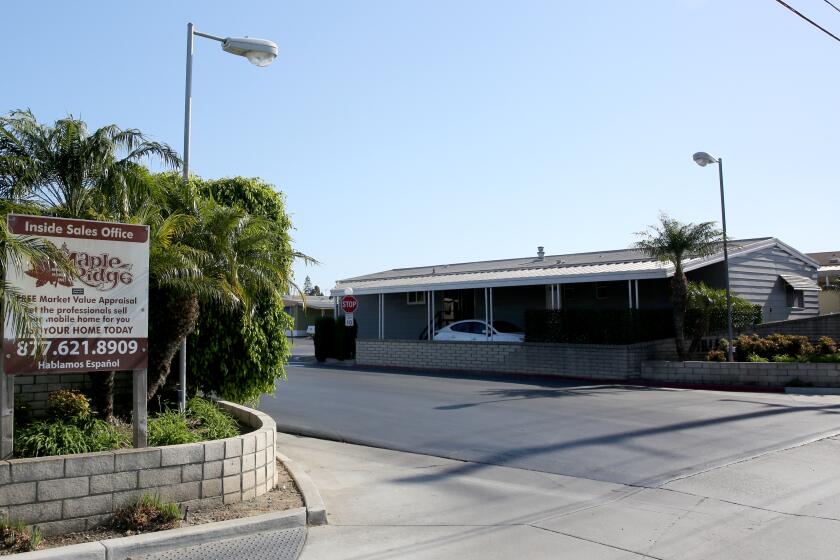KIDS THESE DAYS:
- Share via
It’s not often that one sees people picketing in Newport Beach. But there they were last Friday at Fashion Island, trying to get passersby to vote “no” on Measure B.
The importance of the picketers was not their signs, but the example they are setting for a key group of voters ages 18-24.
According to a fact sheet prepared by the Center for Information & Research on Civic Learning & Engagement, 36% of people age 18-24 voted in the 2000 general elections.
Four years later, that number surged to 47%.
The youth vote numbers are still far below the turnout for everyone older, but looking at the numbers for the past 35 years, the turnout patterns are nearly identical, albeit 15- 20 percentage points apart.
In other words, for example, both groups hit their all-time high in 1992 and their all-time low in 1996.
The youth vote overwhelmingly votes Democratic and has done so for decades. In the 2006 mid-term elections, youths voted Democratic by a margin of 60% to 38% for Republicans.
This is one of the reasons you will see Democratic candidates pushing hard to get kids to vote.
Growing up, my mother, a World War II veteran, was politically active and never missed a vote.
My father, also a World War II veteran, did not vote until 1968 at age 54 when he got fed up with the war in Vietnam and was ready to vote for the most radical plan to get out as quickly as possible.
But really, what’s the point? Why should we vote when one vote won’t make a difference?
“The ability to vote freely and openly is one of a democratic society’s greatest privileges,” said Newport Beach Mayor Ed Selich. “It is also a duty of responsible citizens. It is one of the keystones of our political system. It allows a free expression of society’s goals, values, morals and expectations. It is the process that sets the direction in which our society moves. To not exercise the privilege of voting removes one from that process thereby abrogating the duty to participate in the formulation of policy that shapes our lives.”
I couldn’t agree more. But why waste time on all the little stuff when voting for president is the big thrill?
“Voting on local matters, while not always the most glamorous, is the basic level of how our society functions,” Selich said. “It is the level of government where the elected officials are the most accessible and responsive to constituent needs. While each higher level of government gets more glamorous, at each step individual contact with the electorate is diminished. Local government is where things happen that most affect our daily lives and should be of particular importance to all.”
You should read that again, for this is a message that is not only missing the youth vote but also the overwhelming majority of all voters.
Local turnouts are usually around 25%, despite the fact that these “little” elections affect our daily lives far more than the contest for the White House.
Local elections are where we get to decide who is going to put more police on the street, how many more condos are built and, today, where the new Newport Beach city hall may or may not be located.
Readers with children under 18 should take them to the polls to witness the miracle that is our right to vote.
For setting this example, Republicans will thank you today and your children will thank you when they are 18.
“Parents have the greatest influence on their children’s lives,” Selich said, “and setting an example by voting is one of many things they do that affect the character development of their children.”
Parents, you don’t have to picket to set that example. Just take your kids to the polling place today and at every election.
STEVE SMITH is a Costa Mesa resident and a freelance writer. Send story ideas to dailypilot@latimes.com.
All the latest on Orange County from Orange County.
Get our free TimesOC newsletter.
You may occasionally receive promotional content from the Daily Pilot.









